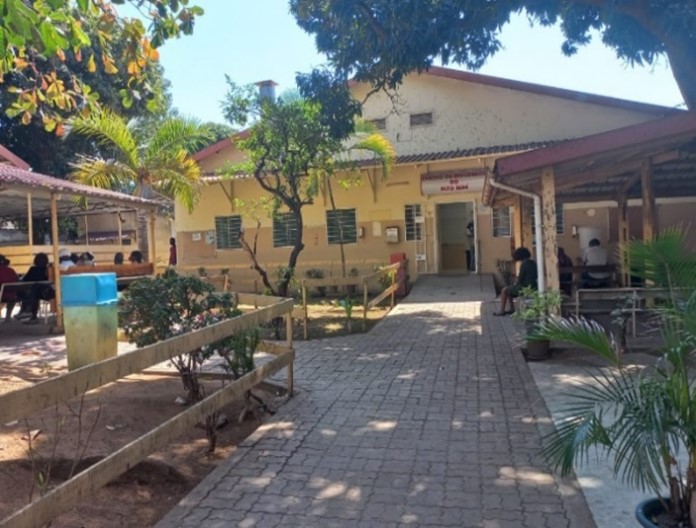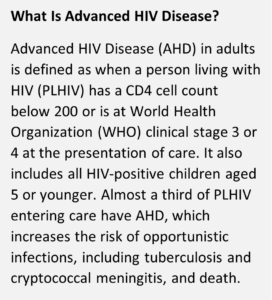
Four decades into the HIV epidemic, more than 50,000 people per year in Mozambique continue to die from HIV-related conditions.
The Alto Maé Reference Center (CRAM) provides a specialized package of care and treatment services for patients with advanced HIV disease from the urban health network of Maputo, Mozambique. Since January 1, 2021, the International Training and Education Center for Health (I-TECH) has served as the Ministry of Health’s primary partner for managing CRAM, a role handed over by Médecins Sans Frontières (MSF), which established the clinic in 2010.
Since I-TECH started its activities at CRAM, the center has had 1,599 active patients in follow-up care.
 “More than 80% of patients admitted to CRAM for specialized care are referred by other health centers,” explains Dr. Florindo Mudender, Country Director for I-TECH Mozambique. “Critically ill patients are treated at CRAM until they are stable, then sent back to their facilities of origin to continue treatment. In addition to acute care, CRAM also provides individualized supportive services to patients who often present with dire psychological, social, and economic conditions.”
“More than 80% of patients admitted to CRAM for specialized care are referred by other health centers,” explains Dr. Florindo Mudender, Country Director for I-TECH Mozambique. “Critically ill patients are treated at CRAM until they are stable, then sent back to their facilities of origin to continue treatment. In addition to acute care, CRAM also provides individualized supportive services to patients who often present with dire psychological, social, and economic conditions.”
These supportive services proved crucial to Aisha,* a 43-year-old mother of five who had difficulty accepting her HIV status, believing that her church’s pastor had cured her disease through prayer.
Referred to CRAM five years ago with a diagnosis of Kaposi’s sarcoma, Aisha was prescribed second-line antiretroviral therapy (ART). However, after losing her job due to COVID-19, Aisha was subject to food insecurity, discrimination, social stigma, and physical, psychological, and financial abuse by her partner.
After routinely presenting a high viral load and suffering severe weight loss, Aisha’s care team at CRAM assumed she had not been taking her medication – possibly because of her religious beliefs and a lack of food. She was severely depressed, to the point of attempting suicide.
Worried about her condition, the team at CRAM enrolled Aisha in wraparound services, including behavioral psychotherapy, education in self-care and self-esteem, treatment adherence support, positive prevention, couple’s therapy and socio-family integration, group therapy with other patients with depression, and antidepressant medication.
After several months, Aisha’s last viral load test showed a result of “undetectable,” and her depressive symptoms abated. Thanks in part to the support from CRAM, Aisha is now adhering to her ART, has regained her self-esteem, is working again, and eats regular meals. Her partner tested HIV-negative and has learned to support her so that she feels valued and loved. Aisha attends psychotherapeutic sessions quarterly at the CRAM to monitor her psychological and social well-being.
“[My husband] helps me a lot, so I don’t forget to take my pills, and I am very happy about that and with the improvement I made with my health,” says Aisha. “Before, we were hungry, and now, I am back to work. With the little I earn I can help with the household expenses.”
CRAM is considered a center of excellence and the main training site for AHD for Mozambique Ministry of Health clinicians and PEPFAR-funded implementing partners.
“I-TECH is currently refining a referral and counter-referral system between CRAM and Maputo City’s health centers, to ensure patient care continues after discharge,” says Dr. Mudender “The system will include a free mobile line to assist clinicians with advice from senior specialists.”
*Name has been changed to protect privacy.
 This story was first reported in
This story was first reported in 
